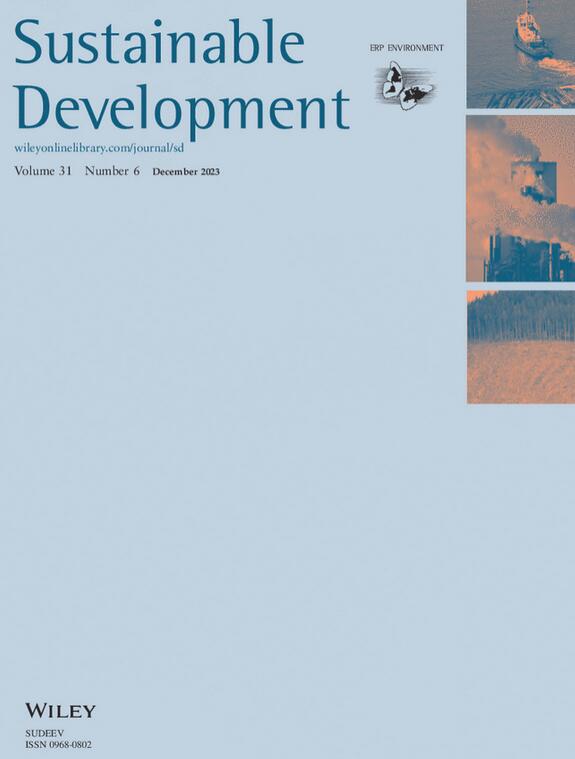Transition towards circular economy in EU countries: A composite indicator and drivers of circularity
IF 9.9
1区 环境科学与生态学
Q1 DEVELOPMENT STUDIES
引用次数: 0
Abstract
The transition to a circular economy (CE) has become one of the main issues of sustainable development policies in many countries worldwide. The present paper offers an empirical analysis of this transition to circularity in European Union (EU) countries. It provides multidimensional indicators for CE performance and observes the interrelationship between macroeconomic indicators and the level of CE implementation. Taking data from 26 EU member states during the period 2010–2019, weighted indicators are constructed for the assessment and comparison between heterogenous countries. Subsequently, a multivariant analysis is performed to quantify the impact of different macroeconomic variables on circularity indicators, such as R + D, sectoral added value, renewable energy usage and population density. The results reveal three distinct groups: those whose indicators display a positive sign, those that show a negative sign, and those that display a changeable evolution throughout the period studied. The panel data regressions carried out to assess the determinants of circularity show the positive impact of expenditure on R + D. Also, it is worth mentioning the existing differences in the implementation status of CE among countries, contingent upon on when they joined the EU.欧盟国家向循环经济过渡:循环性的综合指标和驱动因素
向循环经济(CE)转型已成为全球许多国家可持续发展政策的主要议题之一。本文对欧盟国家向循环经济过渡的情况进行了实证分析。本文提供了多维度的循环经济绩效指标,并观察了宏观经济指标与循环经济实施水平之间的相互关系。利用 2010-2019 年期间 26 个欧盟成员国的数据,构建了用于评估和比较不同国家的加权指标。随后,进行了多变量分析,以量化不同宏观经济变量对研发、部门附加值、可再生能源使用和人口密度等循环性指标的影响。分析结果显示了三个不同的组别:指标显示正数的组别、显示负数的组别以及在整个研究期间显示变化演变的组别。为评估循环性的决定因素而进行的面板数据回归显示,研发支出具有积极影响。此外,值得一提的是,由于各国加入欧盟的时间不同,它们在实施消费电子化方面也存在差异。
本文章由计算机程序翻译,如有差异,请以英文原文为准。
求助全文
约1分钟内获得全文
求助全文
来源期刊

Sustainable Development
Multiple-
CiteScore
17.30
自引率
11.20%
发文量
168
期刊介绍:
Sustainable Development is a publication that takes an interdisciplinary approach to explore and propose strategies for achieving sustainable development. Our aim is to discuss and address the challenges associated with sustainable development and the Sustainable Development Goals. All submissions are subjected to a thorough review process to ensure that our readers receive valuable and original content of the highest caliber.
 求助内容:
求助内容: 应助结果提醒方式:
应助结果提醒方式:


